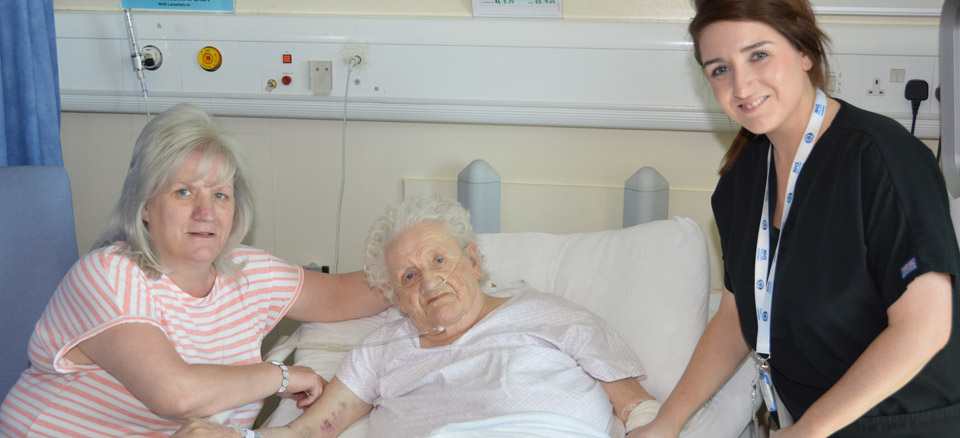The Evening Times ran an article about figures in a new report showing that women from Lanarkshire experience higher-than-average rates of stillbirth and neonatal deaths than other parts of Scotland. The region recorded the second-highest rate in Scotland with 6.42 deaths per 1,000 births. However it is worth noting that the figure of 7,096 Lanarkshire resident […]
New scheme helps patients feel more relaxed

Wishaw General Hospital is once again at the forefront of helping people with dementia.
The hospital has launched ‘Theatre Buddy’. This is where relatives and carers are able to go with patients who have dementia to the operating theatre and stay with them until they have had their anaesthetic and gone to sleep.
Yvonne Jeffery, from Netherton, was one of the first relatives to become a ‘Theatre Buddy’ after her mum, Mary Devanney, needed surgery on a fractured hip. Yvonne said: “I was so glad I could be there for my mum thanks to this wonderful initiative.
My experience of being a theatre buddy was excellent and I would recommend this to anyone.
“All of the medical staff involved from start to finish were fantastic and I would like to thank them with all my heart.”
A new ‘Theatre Buddy’ trolley has also been introduced. This contains items to help calm the patient including stress balls and twiddle muffs if required. It also has iPods with songs from their favourite era and a theatre purse if they would like to take small precious objects, like jewellery, with them into the theatre.
Corinne Barrett, Trauma Liaison Nurse Practitioner, said: “Thanks to John’s Campaign, we have been focusing more on how we care for our patients with dementia when they go to surgery. This inspired us to think about any improvements we could make and we thought we could give relatives and carers the same access as parents of the children that we operate on in theatres.
“As well as being there during the anaesthetic procedure, the relative or carer can also be with the patient in the immediate post-operative phase. This is a time that can be an extremely confusing for any patient, let alone patients with dementia.”


Comments are closed.